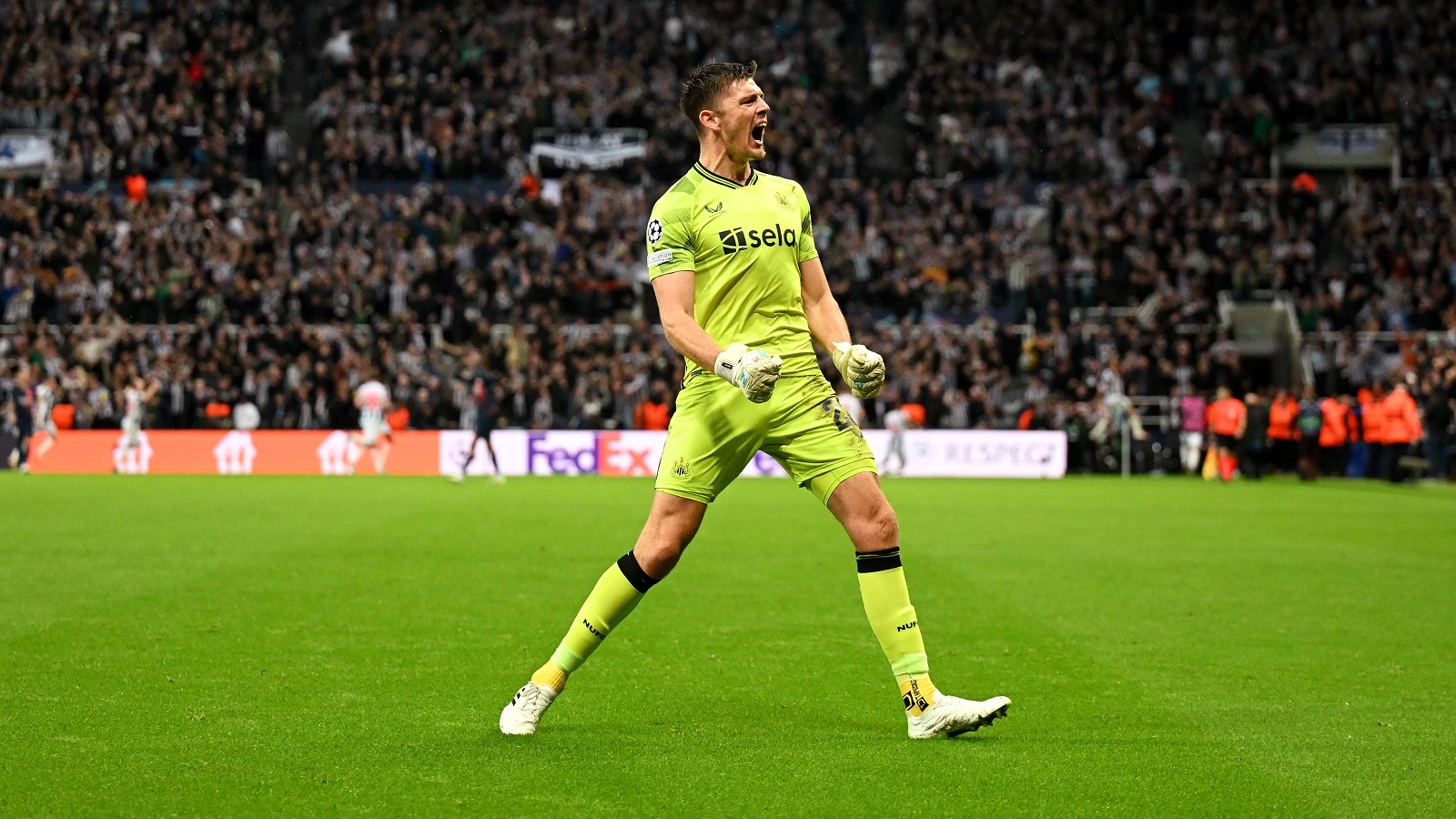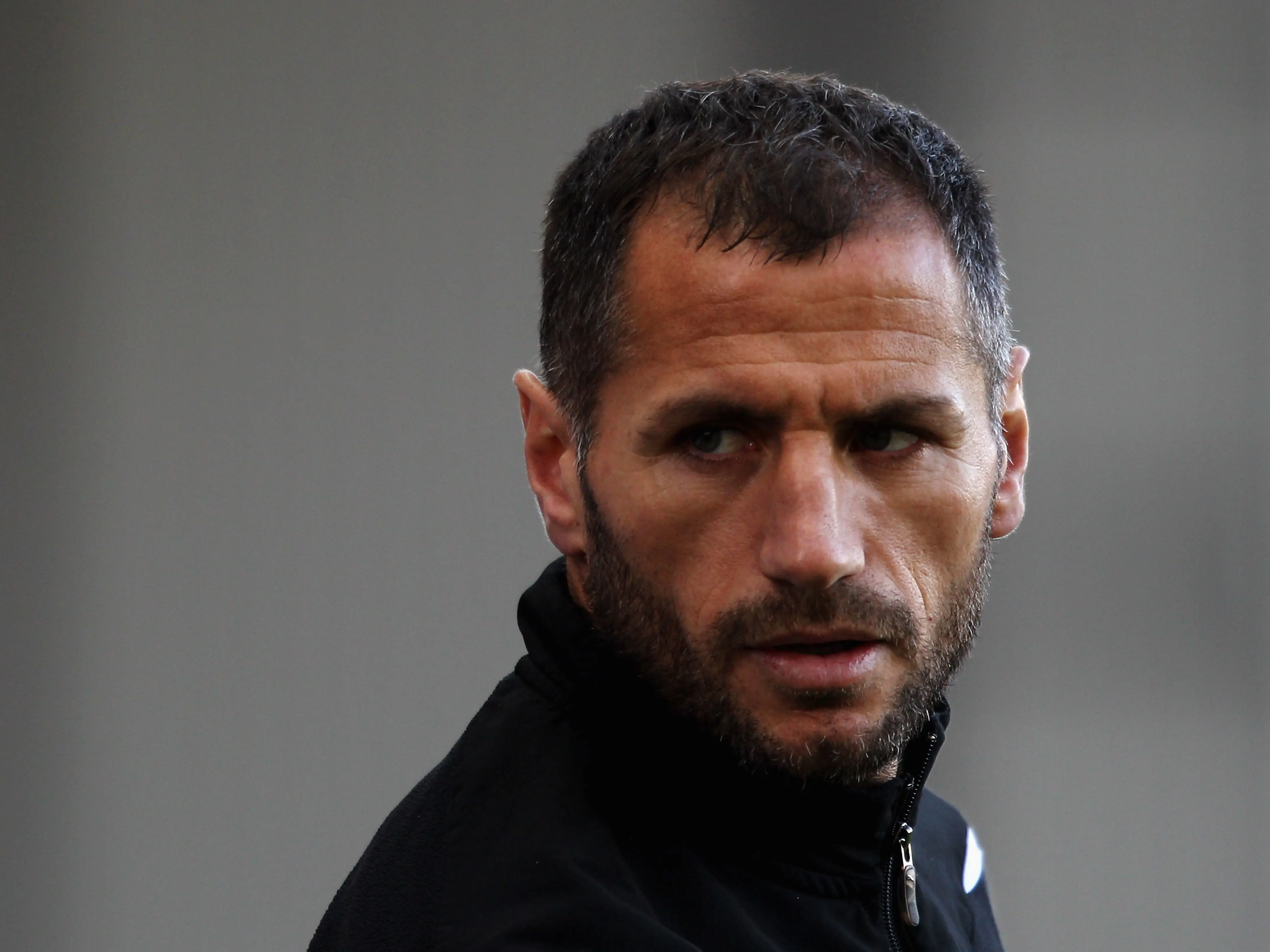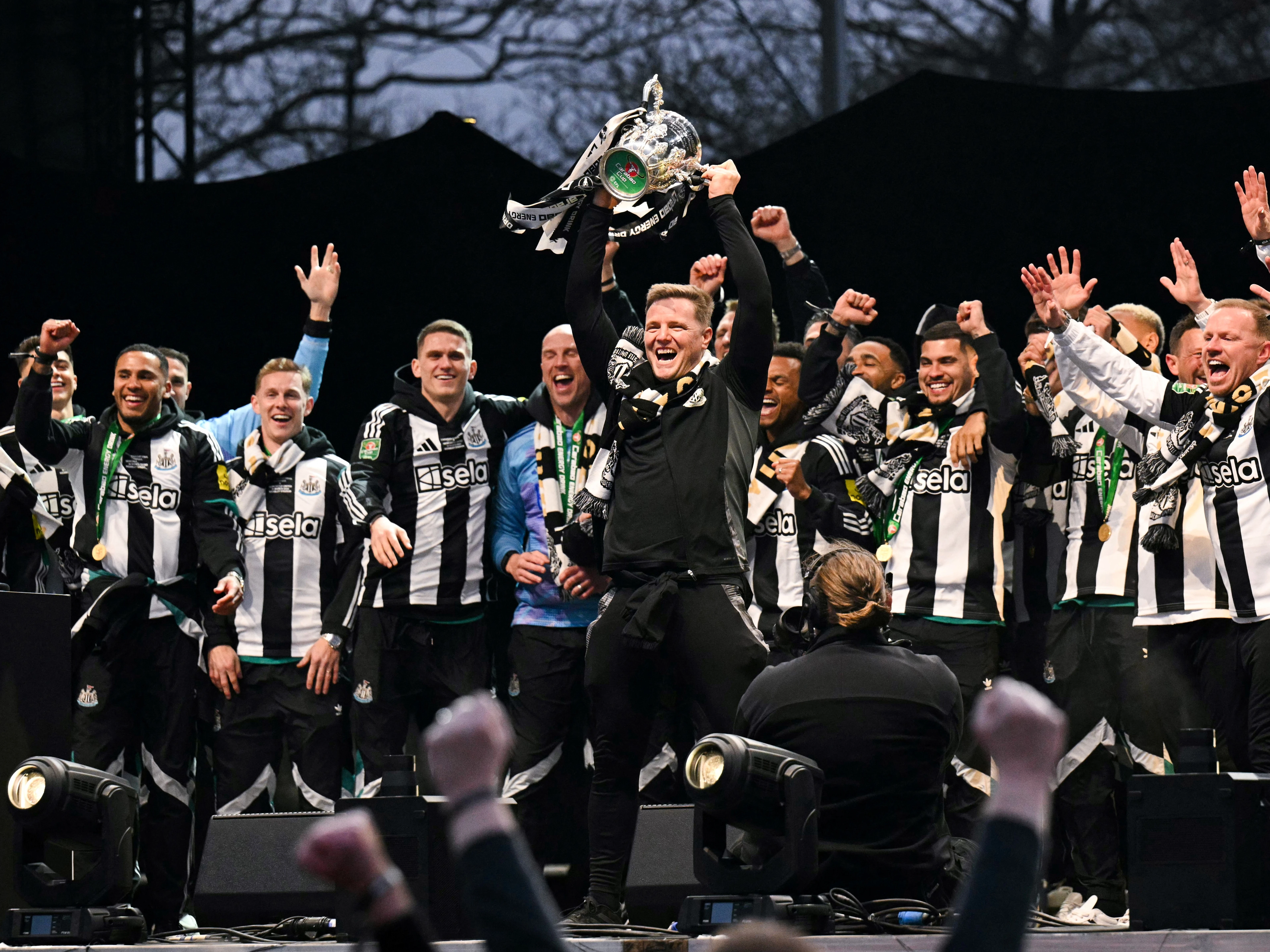He thinks back to his feelings in those early days after his arrival from Burnley in June 2022, before any of his team's recent European contests were reality. "It was just a real optimism about the season and what it could be," he says.
"I don't think you expect to finish in the Champions League, or have that amount of progress in that time. I really was kind of an open book when I signed – I wasn't really (coming in with) too much expectation. I really wanted to play and be part of the team, and be a team that were pushing the upper regions of the league, having come from a team where maybe the ambition was to finish 17th and then see where we went. To come in and have a new set of ambitions after six years at one club was really exciting and an opportunity to forward myself and be part of a massive club and a big team."
There is a sense that the opportunity presented to him by United came at the right time. Eddie Howe had steered the club away from relegation and hope abounded on Tyneside. At 30, Pope says he felt that "more expectation was something I felt I was ready for,", that a new challenge was "something to embrace and to take on". He settled swiftly and easily. Nine successive clean sheets between November and January helped catapult Newcastle into European contention and his steady showings allowed them to stay there.
The came February. Enough time has passed now to allow us ponder how he was able to move on after his red card in the defeat to Liverpool, a dismissal that cost him the chance to play in the Carabao Cup final. It would have been the first major final of his career. He laughs a little wearily, perhaps knowing this was coming. "Good question," he says. "As goalkeepers, you have things that aren't going to go your way throughout your career. Luckily I'm a bit older now; (it's) something that maybe when I was younger might have rocked me or hampered me for a few weeks.
"But it's part and parcel of football, really. Moments come and go and things that happen happen, and you have to ride with it. There's no getting away from that as a goalkeeper – you have to be thick-skinned. You kind of get used to that, whether that's when you first start out as a young goalie and you make a mistake, it's a goal and eyes are on you all of a sudden – you get questioned, doubted, people saying different things. But it's just very much part of being a goalkeeper. I think that's what makes it unique. That's part of the reason I love being a goalkeeper – because of the difference in character that you need, I think, and the different pressure you face."
What is the risk if you don’t move on from those moments, and it festers? "You don't want to find out," he replies. "But the longer you hold onto it and you let it affect you, and you it show it's affecting you, it only holds you back. From my point of view in that situation, we had two massive months of the season left and targets and goals to go for. The season was far from over and we were fighting to get the wins we needed so my focus was straight onto that really, as soon as the final was finished. A week later, it was kind of added fuel for the fire and added motivation for me, because I didn't want the season to slip away from myself because I felt I'd done well up until that point. I didn't want the season to peter out into a damp squib. It was a massive motivation for me, to get over the line and reach the target we'd set."
Pope was there, literally and figuratively, to support Loris Karius at Wembley as he debuted against Manchester United. But it took time to get used to what was happening, and the juxtaposition of such a strong spell being followed by such a low. "After a few days, it slowly sinks in. In a weird way, I think it affects other people differently. Because it's happening to me, you know how you want to deal with it, you kind of want to move on from it, and think about the next thing, because that's the motivation and the best thing for me really.
"You can't close your eyes at night and have 12 hours and forget about it in the morning. It is something you have to live with and carry for a little bit. But human nature, life… it's unfortunately one of those things that happens and it is the best way to see it – you see all scenarios, but every goalkeeper makes mistakes and costs the team goals. It's nothing that's new and it's something that will go on forever, so the best thing for myself and the team was moving on from that."
The Carabao Cup was a missed chance but the prevailing thinking is that the Magpies will surely not have to wait quite as long as they did (24 years) to return to a major final. "There's a lot of routes back there," Pope adds. He was pleased with the way he responded after that Liverpool game. It all led to the final home game against Leicester City, a goalless draw that confirmed their Champions League place. "It was perfect how it happened, to do it in the moment – not to hold on, but to do it in a tight game and get the point we need, it was perfect."
I say he has done well to skirt around his save that earned United that point, a late, instinctive stop from Timothy Castagne's volley. "You know you're in injury time at that point, and if we get beat we've got to go down to Chelsea and get something. That would have been a difficult week for sure, leading up to that," he says. "During the game, we peppered them, really, so to not get a goal was disappointing. When that happens, you're always susceptible to conceding a chance. As a player, when your team maybe has not been punished and not been punished, that kind of gives you belief, and that's what happened a little bit in the game.
"To make that save with one of my only touches… it was nice to be involved and to play a part in the end. When Fabi (Schär) kicked it away afterwards I was over the moon, to be honest. It was probably one of the best nights of the season just because of what it meant to everyone, and it's a culmination of the 37 games up until that point. We knew we deserved to be there after putting ourselves in that spot, but there's nothing like getting over the line."
Pope says that games like that, where the threat to his goal is minimal, the strain of concentration is intense. It has to be. He tells himself that there’s always one more thing to do, to switch on and stay on. Goalkeeping is an ever-evolving discipline but that requirement has endured. In his 12 years in the professional game, what has changed?
"I think probably goalkeepers in general are more proactive now, whereas back in the day it might have been more, 'stop the ball going in the net and then whatever else happens, happens'," he says. "But now it's (about) denying goalscoring opportunities, being proactive off your line to stop through balls and counter attacks, and on the flip side, starting counter attacks and starting attacks in general – making decisions on the ball. I think it's developed probably more than any other position really.
"It's good to be a part of. It's interesting how it's happened in the last ten, 15 years when I've come into professional football, and I've seen it happen and seen changes in tactics and changes in football that affect the goalkeeper, whereas previously I probably wouldn't have.
"In the next ten years, I'm sure it will develop into something different again. That's kind of how football works. It's never going to be the same. I'm sure we'll be watching clips in ten years' time going, 'what are we doing there?' and 'why are we doing that?' Being a player and being a footballer is about trying to improve yourself and adapt and progress. You never want to stand still or think you've cracked it, because you never have."
Pope is 31 now and his time in the game has coincided with soaring demands of goalkeepers at all levels. Like a number of the current United squad, he was schooled in non-league and in time parallels between growing as a keeper and growing as a person have become clear.
"When you're younger you hold onto stuff more, take things to heart a little bit more, or think it's the worst thing ever when you concede a goal or you make a mistake. If someone says something negative you think it's bad, or it can affect you worse. I suppose that's kind of growing your character – making mistakes, doing stuff that’s not right, correcting it and not going into your shell.
"It's just a massive, long learning process really, becoming the best goalkeeper you can be. It's no use coming out for a cross, dropping it and they score and then you don’t come out for a cross for the rest of your life. You learn stuff as you go and as you're put in more difficult or different situations growing up, whether that's playing academy football, going on loan to lower leagues, meeting teammates on the bus and then playing with them an hour later… (they're) all different experiences that stand you in good stead."
Those loans and hard yards contributed to lifting Pope to where he needed to be. The Champions League is new for him but is another stage on which he is more than comfortable. On Tuesday night in Paris, he was in uncompromising form, saving brilliantly from Bradley Barcola and beaten only by Kylian Mbappé's controversial stoppage time penalty. This is another campaign which promises a lot and he feels like Newcastle have already laid the "foundation" for what could be an absorbing six months.
"We don't want to rest on our laurels. We don't want to think as a team that we've had one good season and can't have another good season," he says. "We really want to push ourselves to our limits. We've got so many top players in the building with a top manager – why would we settle? Why would we not try and keep improving and keep pushing ourselves?
"That's how the Premier League is, that's how it works. Teams get better and better and you can't be left behind. I just want to push myself and push the team as much as possible to be challenging at the top of the table.
"You want to give yourself a chance, going into the back end of the season, that you can have a run-in that you're excited about. That's what everyone wants from the team when you get to the end of the season, whether it's major finals, major knock out games, major Premier League games, pushing for stuff. As a player, you want to play in the big games, the must-win games at the back end of the season – they're the ones that get you excited."




